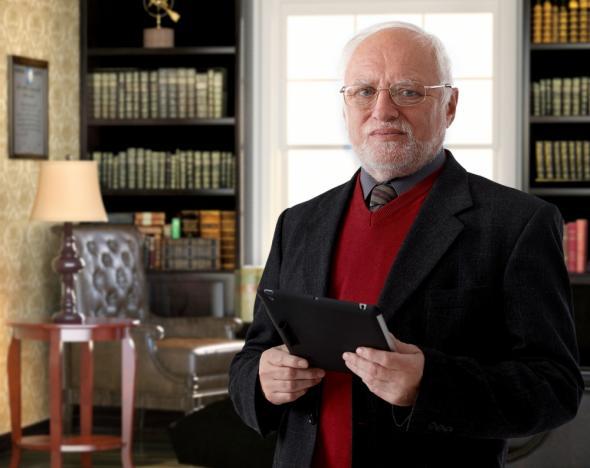Ask any college instructor about online professor-rating sites such as Rate My Professors, and she will insist that not only does she find the anonymous student-rant irrelevant to her career, she hasn’t so much as peeked at her own ratings—in fact, she doesn’t even know if she’s on there.
Hardly. I know enough professors to know that there are two kinds in the world: 1) those who have been equal parts elated and bent out of shape by their RMP ratings—and 2) liars.
Hell, I’ll admit it: While my RMPs as a graduate TA were “stellar” (largely, to my immense shame, because, having begged students not to say I was “easy,” they exaggerated my course’s rigor), my sole entry as a PhD-having faculty member simply says, “easily get a B or higher,” as if that were some sort of admirable feat in today’s university.
Do you see what I did there? I just snarked on that poor student in public, in front of thousands of people. It was easy, and it felt good. Several good-humored profs at Lehigh University also recently had the opportunity to get the last word in on their RMPs, in a promotional YouTube video that was featured on the Chronicle of Higher Ed, and is quickly going “academic-viral” (which is an order of magnitude smaller than actual viral).
Ah, sweet intellectual revenge. I understand the appeal, because hell, I just did it myself—in fact, even in my post-academic life I’ve made it a hobby to isolate and mock people who make mean comments about me online. But it makes me feel dirty to do so, and I’m going to try not to do it anymore. As cute as those Lehigh profs are—and I’d take every one of their classes, especially those of econ prof Frank Gunter, who, when a student lambasted his course on the political economy of Iraq, just said, “Thanks, Mom”—I suspect they might be feeling just a little dirty, too.
Because what they’re doing is basically the minuscule-scale version of Jimmy Kimmel’s popular “Mean Tweets” segment, in which rich and famous celebrities (many of whom also insist that they do not read about themselves online) recite nasty mentions on Twitter, and sometimes respond to them. In a way, the segment is great, because it humanizes these celebrities. Look, they are capable of hurt fee-fees! Just like me!
But it’s also uncomfortable to watch wealthy, pampered individuals allow the unsolicited opinion of some ingrate on the Internet to get to them. Yes, the cheap shots people take at Michael Strahan’s teeth are obnoxious—but Michael Strahan can afford to buy all of the teeth in North America. The hoi polloi’s only recourse, in a world where Ariana Grande is rich and their car just got repossessed, is to make mean comments into a void. As stupid as many of those comments are, at least they’re punching up.
In the professorial world, a similar power differential exists, albeit one in which nobody makes any money or has any fame. Some twerp who doesn’t like to read and learn can lash out however he wants online. (Official course evaluations are a different matter!) It’s the professor who still gets the last word—or, rather, the last letter. The professor’s hurt feelings might traumatize him for a few weeks, but a D can ruin someone’s future. Shouldn’t that be enough?
I understand that it’s near impossible to ignore the mean things people say about you online. My tough time doing so is well documented. But perhaps it’s time for all of us, celebrities and professors and ex-professors alike, to be content with our relative power and let the Internet randos blow off steam in peace.
